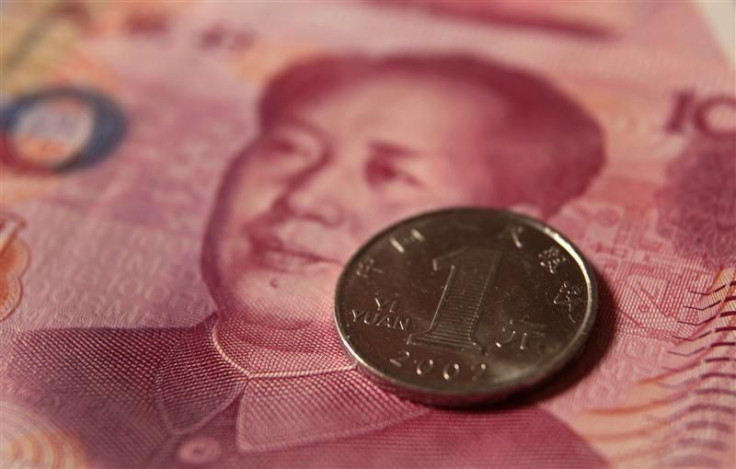Yuan’s Long March Up Appears Finished

For more than a decade, there was a paradigm in financial markets that the yuan can only appreciate.
Well, not any more.
Since China loosened its control on the yuan in July 2005, the currency has appreciated more than 30 percent. Even when Lehman Brothers collapsed in 2008, Beijing pegged the yuan to the U.S. dollar rather than let it fall. But the tide is changing.
The yuan has weakened one percent against the dollar since the start of 2012, after gaining 4.7 percent last year. While this may be a modest fall by the standards of most currencies, it's a big one for the yuan.
In recent months, China has been seeing a slowdown in industrial production, a plunge in export growth and tepid bank lending. The country's gross domestic product rose 7.6 percent in the second quarter from a year earlier, its slowest rate of growth since the first quarter of 2009 and slower than the first quarter's 8.1 percent rise.
In comments posted on the central government's website, Chinese Premier Wen Jiabao said Wednesday that there was "growing room for monetary policy operation," indicating that China may act to boost economic growth.
With the Chinese economy slowing sharply, traders are now betting the yuan will fall further in the coming months, a decline that could limit Beijing's ability to cut interest rates to bolster the economy.
Yuan's weakness, if sustained, could also dampen investors' willingness to accept the currency in fear of further value loss. This could hinder Beijing's plan to internationalize the yuan.
"Continued yuan appreciation is no longer a one-way bet and there is the possibility of a sharp yuan depreciation in the event of a global financial crisis," reports the Wall Street Journal, citing Moody's Analytics economist Alaistair Chan.
Chan said the possibility of an overvalued yuan -- once was seen as highly unlikely -- is now being priced into the futures' markets.
In the non-deliverable forward market, where traders place bets on the future exchange rate, the yuan is priced to fall 1.3 percent against the dollar over the next 12 months. Some experts say if Beijing were to allow the yuan to float freely, the depreciation would be much more substantial.
"The shifting balance of flows and also the increasingly two-way nature of [U.S. dollar-yuan] price action, support the view that [the yuan] is much closer to equilibrium value than it has been for many years," HSBC said in a note to clients.
Inflows of foreign money into China have slowed this year. Data released Thursday showed foreign direct investment of $7.6 billion in July, a drop of 8.7 percent from a year earlier.
Fears about capital outflows were given a fresh boost with publication of the second-quarter balance of payment (BoP) data last week showing that China ran a BoP deficit - in other words, the People's Bank of China sold foreign exchange reserves - for the first time since 1998.
In expectation of yuan depreciation, Chinese companies have been accumulating dollars at a record pace this year and total foreign currency deposits have increased $137bn, or 50 percent, since January.
These developments are putting pressure on the domestic exchange rate, which is allowed to fluctuate up to one percent either side of a midpoint set each day by the People's Bank of China.
A falling yuan has put China in a dilemma: Any interest rate cut could prompt further capital outflows -- which hit a net $71.4 billion in the second quarter -- and so hurt efforts to speed growth up.
That said, some economists believe fears about capital leaving China are overdone, but it reflects companies expectation of a softer yuan.
"Recent pressure on the People's Bank to sell foreign exchange appears to be the result of greater willingness among Chinese firms to hold on to their dollar receipts rather than a rush of capital heading offshore," Qinwei Wang, an economist at Capital Economics, wrote in a note to clients. "This appetite for foreign exchange most likely reflects the fact that firms are in less of a hurry to exchange foreign currency receipts into renminbi now that expectations for renminbi appreciation have fizzled out."
Yuan rose against the dollar late Friday after the central bank guided the Chinese currency higher via a daily reference rate.
On the over-the-counter market, the dollar was trading in a range of 6.3558 yuan to 6.3653 yuan, higher than Thursday's close of 6.3658 yuan.
© Copyright IBTimes 2024. All rights reserved.












